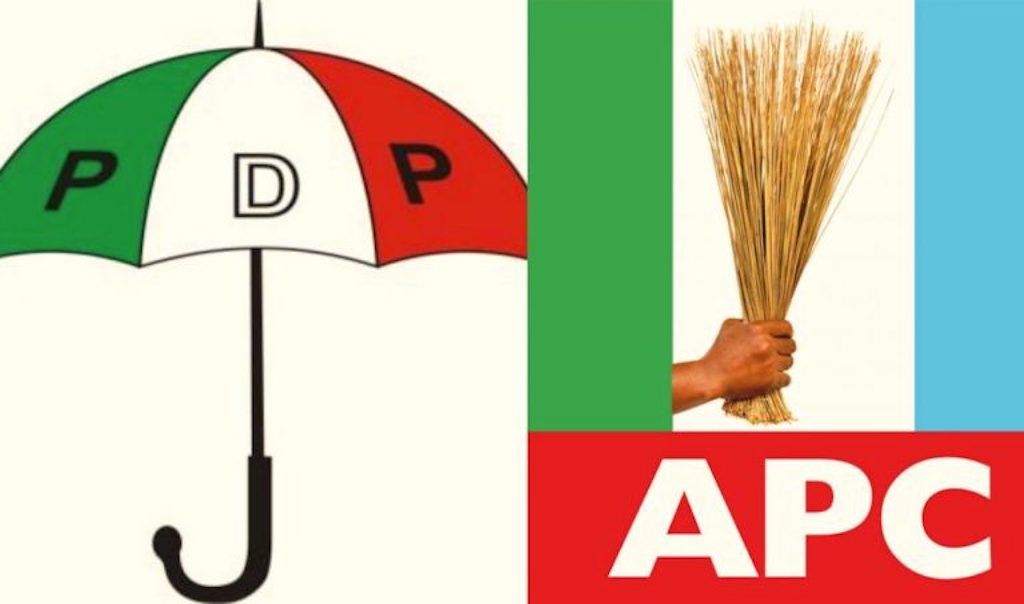Following a recent judgment from the Federal Court in Canada, labelling the Nigerian political parties as terrorist organisations, the major political parties, the People’s Democratic Party (PDP) and the All Progressives Congress (APC) have both denounced the ruling.
has sparked outrage within Nigeria’s two major political parties — the Peoples Democratic Party (PDP) and the All Progressives Congress (APC) — after both were labelled terrorist organisations.
The ruling, delivered on June 17, 2025, by Justice Phuong Ngo, affirmed an earlier Immigration Appeal Division decision to deny asylum to Nigerian citizen Douglas Egharevba, citing his long-standing ties to the parties.
Media reports say Egharevba was active in the PDP between 1999 and 2007 before switching to the APC, where he remained until leaving for Canada in 2017, openly declaring his political affiliations.
In documents submitted to the court, Canada’s Minister of Public Safety and Emergency Preparedness alleged that both parties had been involved in acts of political violence, undermining democracy, and electoral bloodshed.
The claims referenced incidents such as the PDP’s alleged role in the 2003 state elections and the 2004 local government polls, where reports pointed to ballot stuffing, voter intimidation, and the killing of an opposition supporter.
READ ALSO
The Immigration Appeal Division determined that both parties’ leadership reaped benefits from the violence and did nothing to halt it, an omission that, under paragraph 34(1)(b.1) of Canada’s Immigration and Refugee Protection Act (IRPA), qualifies as subversion.
Justice Ngo affirmed that under paragraph 34(1)(f) of the IRPA, “mere membership of an organisation linked to terrorism or democratic subversion” could trigger inadmissibility — even without proof of personal involvement.
In response, the PDP denounced the ruling as “misinformed, biased, and lacking evidence,” and demanded its complete nullification.
The PDP’s Deputy National Youth Leader, Timothy Osadolor, said, “Nigeria and Canada are both democracies. And I’m sure those who make such statements enjoy their right to freedom of speech.”
“But again, when having freedom of speech, one should be circumspect about unguarded and unnecessary statements. There’s nothing to show, there’s nothing in the text to show that even the malfunctioning APC is a terrorist organisation or the PDP, which is a credible institution.”
“If they wanted to say that some individuals in the government, particularly the APC government, have ties to terrorism… they will have a case. But to say an entire political party is a terrorist organisation is wrong.”
Correspondingly, the APC, through its National Secretary, Senator Ajibola Bashiru, rejected the verdict, branding the presiding judge “An ignoramus” and stressing that the party is “A credible democratic political organisation” that “does not seek legitimacy from a foreign bench and under a law that has no extraterritorial application.”
Bashiru, according to The Nations, argued, “The court has no jurisdiction to determine the status of a Nigerian recognised political party not to talk of declaring it as a terrorist organisation…
“The so-called judgment was obviously delivered from a jaundiced perspective and within the narrow confines of determining eligibility for asylum by an applicant.”
He further lamented: “It is unfortunate that some desperate and unpatriotic Nigerians will allow the name of the country to be brought to unpalatable commentary by racist judges on account of self-contracted application for asylum.”
Both parties called on Canadian authorities to prioritise holding individuals accountable instead of issuing broad designations, arguing that such actions risk straining diplomatic ties and misrepresenting Nigeria’s democratic reputation on the global stage.
However, warning of far-reaching consequences, the former NNPC spokesperson, Olufemi Soneye, said the Canadian court’s verdict could set a troubling precedent for democracies worldwide.
“If democratic nations don’t push back on this kind of overreach, they may one day find their own politics on trial in a foreign court,” he cautioned.
He argued that the decision could lead to “heightened scrutiny, denied visas, and rejected asylum claims… not only in Canada but potentially in other Western democracies that may follow suit.”
Soneye, tagging long-standing political parties as terrorist organisations, “Undermines their legitimacy at home and abroad… Once such a label is applied, it can be wielded… to silence opposition, suppress political participation, and erode civil liberties.”















